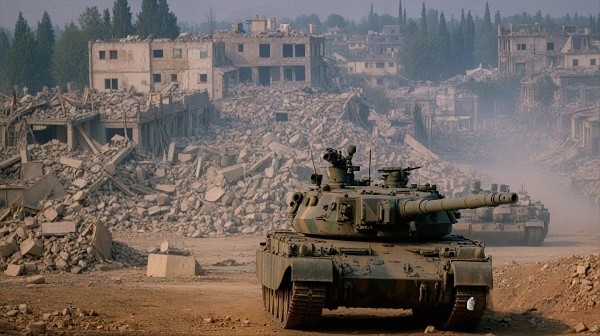Iran’s Plan to Strike Back Against the U.S.
Iran’s Military Preparations Following U.S. Attacks
Loading...

The Israeli military has warned its troops and officers about the possibility of their arrest while abroad over war crimes against Palestinians in the Gaza Strip, where the Israeli regime has been waging a genocidal war for around 14 months.
In a significant move, the Israeli military has cautioned its soldiers and officers against international travel due to escalating concerns over potential arrests linked to war crimes. This warning comes in the context of ongoing military actions in the Gaza Strip, which have persisted for approximately 14 months and have drawn severe international scrutiny.
Concerns Over International Criminal Court Investigations
According to Israeli newspaper Yedioth Ahronoth, the military's warning reflects the increasing likelihood that the International Criminal Court (ICC) may initiate actions against Israeli forces. Reports indicate that there have been around 30 complaints and legal actions filed against Israeli troops for their involvement in violent operations in Gaza. As international pressure mounts, the military has taken proactive measures to protect its personnel from potential legal repercussions while abroad.
In light of these fears, the Israeli military has ordered eight soldiers stationed in countries such as Cyprus, the Netherlands, and Slovenia to return to Israel immediately. This directive underscores the seriousness of the situation, as the military seeks to mitigate risks of detainment and legal action.
Social Media and Privacy Precautions
To further safeguard its personnel, the Israeli military has instructed its troops to remove any photos or videos from social media that depict their involvement in the operations in Gaza. Additionally, soldiers are advised to avoid sharing their locations while traveling internationally to prevent retaliation from pro-Palestinian groups. Reports suggest that these organizations have compiled blacklists of individuals who participated in the ongoing conflict, increasing the potential for confrontations.
Legal Defense and International Backlash
In response to the growing threats, the Israeli regime has mobilized a network of lawyers globally to defend its forces against potential legal challenges. This strategy highlights the regime's determination to shield its military personnel from accountability as international scrutiny intensifies.
The situation escalated recently when an Israeli soldier, identified as Ilay, was reportedly assaulted while on vacation in Thailand. The 22-year-old was confronted and attacked by German tourists, underscoring the heightened tensions surrounding Israeli military actions abroad.
ICC Arrest Warrants and U.S. Involvement
The warnings from the Israeli military come on the heels of significant developments from the ICC, which issued arrest warrants for Israeli Prime Minister Benjamin Netanyahu and former Minister of Military Affairs Yoav Gallant. These warrants were based on charges of war crimes and crimes against humanity related to the ongoing conflict in Gaza. The ICC has expressed facing coercive measures, threats, pressure, and acts of sabotage following the issuance of these warrants, reflecting the complex and contentious nature of international legal proceedings.
In a show of support for Israel, the United States, the regime's key ally, has threatened to impose sanctions on ICC staff in response to these legal actions. This stance comes amidst reports indicating that the conflict has led to the deaths of over 44,500 Palestinians, predominantly women and children, raising significant humanitarian concerns.
Conclusion
The Israeli military's travel warning reflects the broader implications of ongoing military operations in Gaza and the potential for international legal accountability. As tensions rise and international scrutiny mounts, the situation remains precarious for Israeli personnel abroad, prompting measures aimed at protecting them from legal and physical repercussions. The interplay between military actions, international law, and diplomatic relations continues to shape the discourse surrounding this complex and evolving conflict.
Editor
Iran’s Military Preparations Following U.S. Attacks
Troops remain in five strategic locations, raising fears of renewed tensions and long-term occupation.
Opposition forces have taken control of the capital after a significant offensive. Here is how it unravelled.
